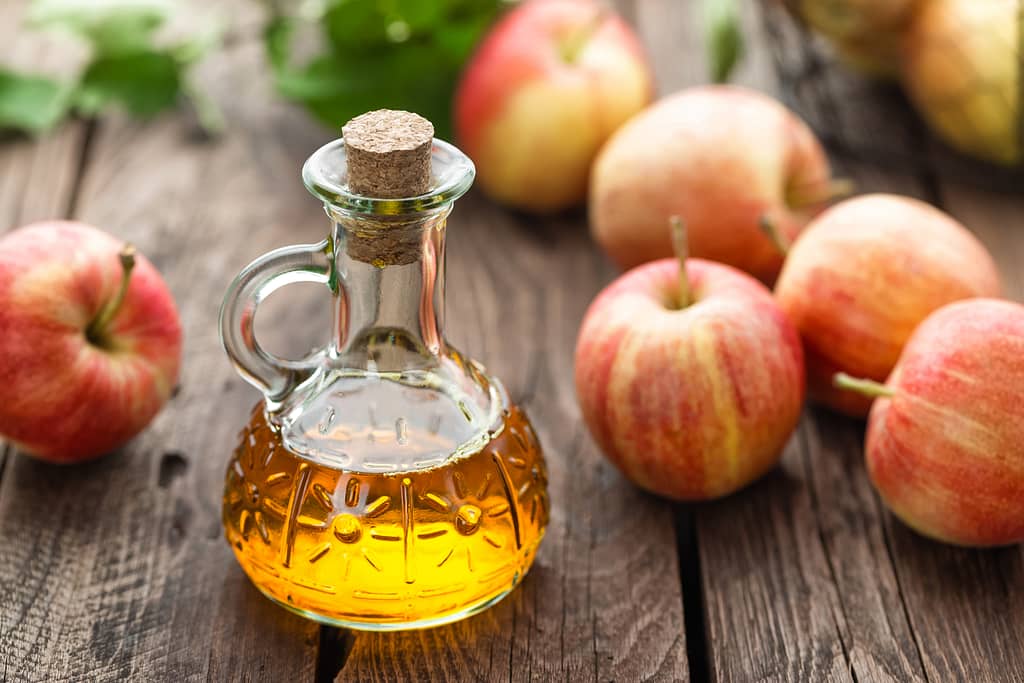
The One Food We All Eat: A Silent Health Threat
The One Food (WE ALL EAT) That’s Killing Us Slowly
The Health Expert Max Lugavere Said:
As a health expert, I’ve uncovered a startling truth about The One Food we all consume daily: added sugar.
This seemingly innocent ingredient is silently wreaking havoc on our bodies, leading us towards a path of decline.
In today’s society, the overconsumption of added sugar has become a widespread problem, with detrimental effects on our health.
In this article, I will delve into the insidious nature of added sugar, its profound effects on our bodies, and the importance of being mindful of hidden sugars in our everyday food choices.
The Surprising Culprit: A Food We All Consume Daily
As a health expert, I’ve discovered that the surprising culprit responsible for harming our health is a food we all consume daily. This food is none other than processed foods.
While they may be convenient and tasty, processed foods hide a multitude of dangers. They’re often packed with added sugars, unhealthy fats, and high levels of sodium. These ingredients have been linked to various health problems, including obesity, heart disease, and diabetes.
But fear not, there are healthier alternatives to processed foods. Opting for whole, unprocessed foods like fruits, vegetables, lean meats, and whole grains can provide the nutrients our bodies need without the hidden dangers.
Unveiling the Silent Killer on Our Plates
Processed meats are the silent killer on our plates, wreaking havoc on our health without us even realizing it. Many people are unaware of the hidden dangers of everyday foods, particularly when it comes to the role of diet in brain health.
Research has shown that consuming processed meats can have detrimental effects on our cognitive function and overall brain health. These meats are often high in unhealthy fats, sodium, and preservatives, which can lead to inflammation and oxidative stress in the brain.
Additionally, the nitrates and nitrites used in the processing of these meats have been linked to an increased risk of certain cancers and neurodegenerative diseases.
It’s crucial to be mindful of our food choices and opt for healthier alternatives to protect our brain health and overall well-being.

The Disturbing Link Between This Common Food and Our Health
I’ve discovered a disturbing link between The One Food and our health that’s causing significant harm. This revelation highlights the importance of being aware of our dietary choices and considering alternative options. Here are three key points to consider:
- Hidden dangers: This common food often contains added sugars, which can have long-term health implications. Overconsumption of added sugar has been linked to obesity, glucose dysregulation, and an increased risk of chronic diseases like diabetes and heart disease.
- Ultra-processed culprits: Many ultra-processed foods, including this common food, are major sources of added sugar. These highly processed products can be detrimental to our health when consumed in excess, contributing to weight gain and other health issues.
- Choosing wisely: Opting for alternative dietary options that minimize added sugar intake is crucial for long-term health. Incorporating whole, unprocessed foods into our diet and being mindful of added sugars can help reduce the risk of chronic health conditions and promote overall well-being.
The Startling Truth About Our Favorite Everyday Food
The alarming reality about our beloved everyday food is its detrimental impact on our health. Specifically, I want to uncover the truth about sugar and its effects on our well-being. While sugar is found naturally in many plant foods, it is the added sugar by food manufacturers that poses the most pernicious threat. The hidden dangers of processed foods lie in their excessive sugar content, leading to health issues such as obesity and glucose dysregulation. To illustrate the gravity of this issue, let’s take a look at the following table:
| Food Item | Sugar Content (Teaspoons) | Equivalent to |
|---|---|---|
| Soda | 10 | 1 can |
| Chocolate bar | 5 | 1 bar |
| Breakfast cereal | 3 | 1 serving |
| Yogurt | 6 | 1 cup |
| Tomato sauce | 4 | 1/2 cup |
As you can see, our favorite everyday foods can contain alarming amounts of added sugar, contributing to a host of health problems. It is crucial to be mindful of our sugar intake and make informed choices to protect our well-being.
The Slow Poison Lurking in Our Meals: Revealing the One Food Killing Us
One food that’s slowly killing us is sugar. The hidden danger lies in the fact that sugar is found in many of the foods we consume daily, often in the form of added sugars.
Here are three important points to consider when it comes to the impact of sugar on our health:
- The prevalence of added sugar: Sugar is a common ingredient in ultra-processed foods, making it easy to consume excessive amounts without even realizing it. This overconsumption can lead to various health issues, including obesity and glucose dysregulation.
- The role of education: Understanding the impact of our daily diet is crucial in making informed choices. By uncovering the truth about the dangers of added sugar, we can empower ourselves to make healthier choices and reduce our sugar intake.
- Mindfulness of hidden sugars: Many sugar-free products can still contain high levels of added sugars, disguised under different names. Being mindful of food labels and ingredients can help us avoid the pernicious effects of hidden sugars and make more conscious decisions about what we eat.

The Alarming Impact of Our Daily Diet: The One Food We Can’t Escape
Every day, I find myself confronted with the alarming impact of our daily diet and the one food we can’t escape: added sugar. Processed foods, which are a significant part of our daily diet, often contain high amounts of added sugar. This common food has a profound impact on our health, contributing to the development of chronic diseases.
To help you understand the role of processed foods and the impact of added sugar on chronic diseases, here is a table:
| Processed Foods | Impact on Chronic Diseases |
|---|---|
| High in added sugar | Increases the risk of obesity, type 2 diabetes, and cardiovascular diseases |
| Contain unhealthy fats | Contributes to high cholesterol levels and an increased risk of heart disease |
| Lack essential nutrients | Leads to nutrient deficiencies and weakens the immune system |
| High in sodium | Raises blood pressure and increases the risk of hypertension |
It is crucial to be aware of the presence of added sugar in our daily diet and make informed choices to reduce our intake. By opting for whole, unprocessed foods and reading food labels, we can take control of our health and lower the risk of chronic diseases associated with added sugar consumption.
The Hidden Health Perils
In today’s fast-paced world, we often overlook the profound impact of “the one food” we all consume regularly. Its hidden dangers lie beneath the surface, quietly jeopardizing our health. While it may be a staple in many diets, it’s crucial to delve into the consequences it holds for our well-being.
Understanding Its Ubiquity
“The one food” has become an omnipresent part of our lives. It’s in our daily routines, at our family gatherings, and even on our restaurant menus. Its ubiquity makes it challenging to avoid, and its effects on our health often go unnoticed until it’s too late. To truly grasp the extent of its influence, we must examine its role in our lives comprehensively.
Impact on Long-Term Wellbeing
The long-term consequences of consuming “the one food” are profound. Its gradual impact on our health can lead to a range of issues, from chronic diseases to diminished vitality. To safeguard our long-term wellbeing, it’s imperative that we recognize the role “the one food” plays and take steps to mitigate its effects on our health.
Making Informed Dietary Choices
Being aware of “the one food” in our diets is the first step toward making informed dietary choices. By understanding its nutritional value and potential health risks, we can better assess how it fits into our overall diet. This knowledge empowers us to make conscious decisions about our food consumption and take proactive steps to protect our health.
Healthier Alternatives to Consider
While “the one food” might be deeply ingrained in our diets, it’s important to explore healthier alternatives. By seeking out nutritious substitutes and incorporating them into our meals, we can reduce our reliance on “the one food” and make significant strides toward improving our overall health. It’s time to take control of our diets and make choices that prioritize our well-being over convenience.

Frequently Asked Questions
How Does the Consumption of Added Sugar Contribute to Brain Shrinkage?
Consuming added sugar can contribute to brain shrinkage due to its impact on waist expansion. Excessive sugar consumption leads to obesity, which is associated with reduced brain volume and cognitive decline. It’s important to limit added sugar for optimal brain health.
Are There Any Health Benefits to Consuming Red Meat?
There are health benefits to consuming red meat, despite what some may believe. It provides essential nutrients like protein, iron, and vitamin B12. However, there are also alternatives for those who choose not to eat red meat.
How Does a Vegan Diet Increase the Risk of Depression?
A vegan diet can increase the risk of depression due to potential deficiencies in nutrients like choline, which is important for brain health. It’s important to ensure proper nutrient intake for mental well-being.
What Is the Role of Choline in Reducing the Risk of Cognitive Decline?
Choline plays a vital role in brain health and reducing the risk of cognitive decline. Proper nutrition is essential for optimal cognitive function. Understanding the importance of choline can help us make informed choices about our diet.
Can a Ketogenic Diet Be Beneficial for Mental Illness?
A ketogenic diet may have benefits for mental illness. It can help regulate brain function and improve symptoms. Additionally, choline plays a role in reducing the risk of cognitive decline, making it an important nutrient to include in our diets.

